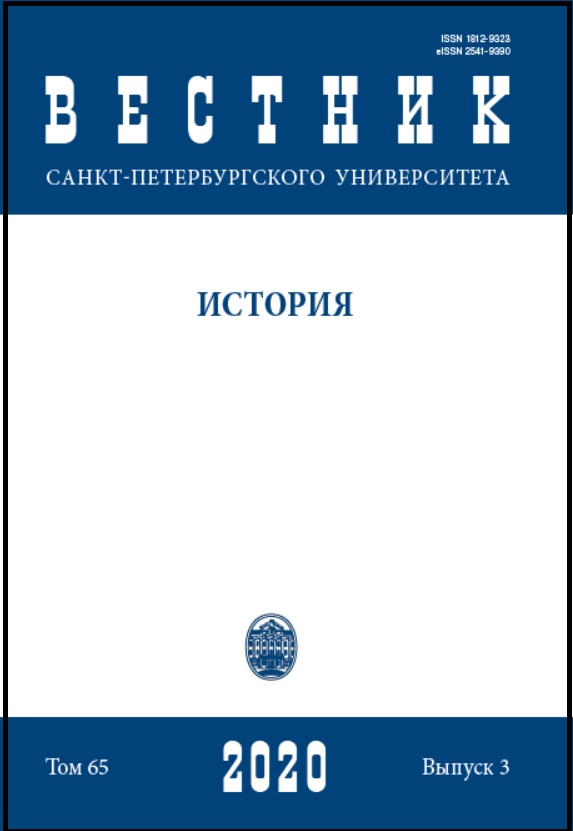Military Traditions of the Don Cossacks in the Late Imperial Period
DOI:
https://doi.org/10.21638/11701/spbu02.2020.305Abstract
The issue of the development of military traditions in the Cossack milieu on the eve of the 20th century remains a matter of debate in contemporary Russian historiography. A number of scholars (e.g., A.V. Iarovoi and N.V. Ryzhkova) have argued that the Cossacks’ system of historical military traditions remained viable until 1917. Other researchers (e.g., O.V. Matveev) have claimed that the system of Cossack military traditions had actually experienced a crisis and collapsed by then. This paper seeks to establish the truth. To accomplish this, the authors draws upon a set of newly discovered responses from Russian generals to the report of the Maslakovets Commission. The paper shows that the Cossacks’ historical traditions of military training in the stanitsas were forgotten not by the beginning of the 20th century, but by the 1860s. During this time, the Don units’ declining combat capability drew the attention of Alexander II, with 50% of the young Cossacks entering military service by the beginning of the 20th century “poorly” and “unsatisfactorily” prepared. The War Ministry endeavored to revive the Cossacks’ martial games and military training in the stanitsas. However, according to certain Cossack generals, its actions, at the same time, had violated the historical Cossack traditions of military training, causing, by certain testimonies, their total ruin by the beginning of the 20th century. The main conclusion drawn in this paper is that the image of the Cossack as a “dashing equestrian warrior”, going back to official pre-revolutionary historiography, is highly idealized.
Keywords:
Don Cossacks, military traditions, martial games, preparation for service, idealization of the past
Downloads
Downloads
Published
How to Cite
Issue
Section
License
Articles of "Vestnik of Saint Petersburg University. History" are open access distributed under the terms of the License Agreement with Saint Petersburg State University, which permits to the authors unrestricted distribution and self-archiving free of charge.





